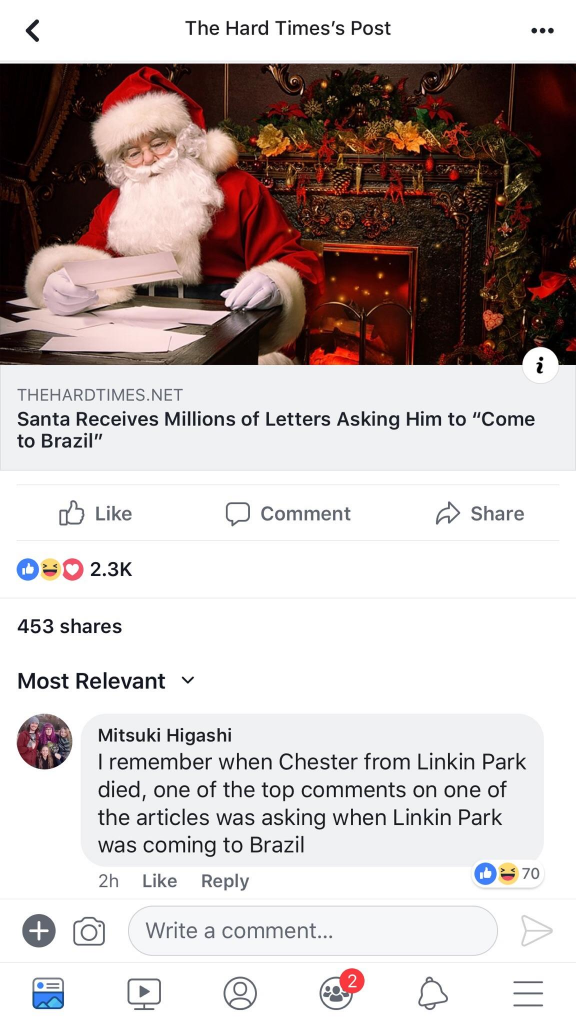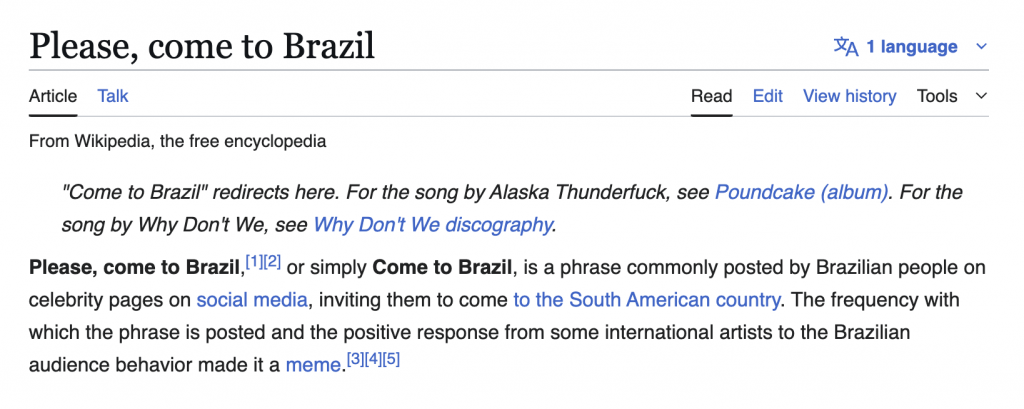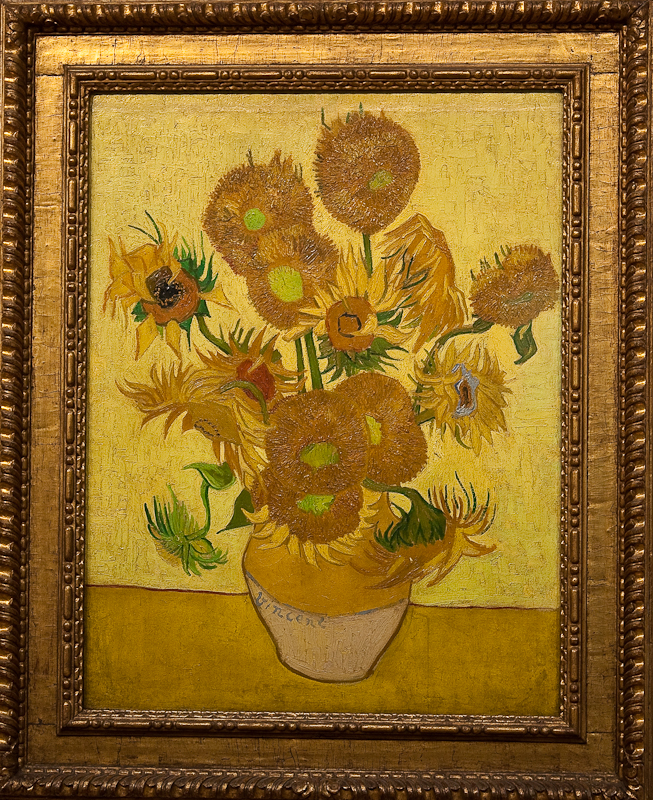If you’re really into pop music and also chronically online, you’ve probably come across a few “Come to Brazil” comments on a celebrity’s social media post. It took me some time to figure out how to approach this week’s prompt [Where in the world is (insert digital medium of your choice here)?] but after a few rainy days that made me homesick, I thought: why not flip the question? Instead of tracking down a single digital medium, I’d rather explore how digital platforms live in Brazil.



Of course I can’t talk about every single digital platform, otherwise this would become an infinite book, so I’ve decided to briefly mention a few of the ones I consider the most Brazilian: Orkut, WhatsApp and X (Twitter). Brazil hasn’t created many digital platforms that the whole world knows, unlike the U.S.A. or China. But that doesn’t mean Brazilians don’t leave a huge mark online. What we do best is transforming each platform to fit our culture, our ways of communicating, and our social realities. This reminds me of Marshall McLuhan’s famous idea that “the medium is the message.” It’s not just the platform itself that matters, but how people use it, what the medium becomes in their hands.
have you heard of orkut?


Orkut became a massive hit in Brazil, arguably more popular there than anywhere else in the world. I never used it myself since I was just a kid when it was at its peak, but all my relatives did, and it’s always intrigued me how deeply it embedded itself in Brazilian digital life. I actually own a shirt with the Orkut community “I hate Mondays” printed on it because of how nostalgic I find it as a media student. To me, Orkut is a symbol of an early, almost innocent internet era. It blew my mind once I found out it wasn’t a global hit, how could a social media platform perform so well within a country? It’s almost like information traveled a bit slower back then compared to nowadays, even though the internet was already established. Orkut was a foreign platform, designed and controlled by Google, yet Brazilians claim it as their thing, filling it with “scrapbooks” and public communities that reflected local culture. Compared to Facebook, which later came to dominate, Orkut’s community-based approach encouraged more public displays of affection and identity, but it also laid groundwork for the intense social surveillance and performativity we see today.
whatsapp feels like home
Back home WhatsApp isn’t just a messaging app, it’s basically an ecosystem where people do pretty much everything. I use it to talk to my family members, my doctors, my classmates, my bank manager, I get updates from my favorite football team, I order food… I also scheduled my last surgery through it. WhatsApp has become the go-to platform for everyday life, and this deep integration is partly because it’s mobile-friendly, zero-rated by many carriers, and so familiar that for many Brazilians, WhatsApp is basically the entire internet. This all-in-one nature means that some people use it to get informed of serious matters, and as it concentrates so much personal communication in one place, misinformation spreads quickly, and privacy concerns multiply. Somewhere in Brazil, that’s where a grandma talks to her church group but also gets a lot of political propaganda from her town’s mayor candidate.
I recently gained access to my company’s WhatsApp Business account, at the same time my phone’s charging port stopped working. It made me realize how my entire life is on that app, but even if my phone stops working I at least know I could access it through my laptop.
are social media platforms bigger than countries?

X (formerly Twitter) has always been a place for political debate worldwide, but last year the discourse in Brazil left the screens. In 2024, the country’s highest court, the Supreme Federal Tribunal (STF), clashed directly with Elon Musk over the platform’s refusal to comply with court orders and decided to suspend the platform in the entire country. The decision came after Musk’s company failed to pay fines and appoint a legal representative in Brazil, key requirements under Brazilian law.
Brazilians had mixed reactions while watching our institutions challenging a billionaire tech owner whose decisions could influence national politics and democracy itself. This episode highlighted a critical tension in the global digital age: who really controls the platforms that shape public discourse? Brazil’s pushback against Musk’s Twitter showed that digital platforms are not beyond the reach of local laws and culture, and that even global tech giants must respect national sovereignty.
people shape social media
With this blog I wanted to highlight that not only do social media platforms shape society, but people also shape social media. It seems like a simple statement, but it’s critically important to analyze the behaviour of each social media platform in different contexts. Not only do online bubbles still exist, but even within a super globalized world, our cultures still reflect on the way we navigate the internet. The 2024 fight over Twitter/X’s control may have impacted Bolsonaro’s 2025 arrest, a fight for democracy. Both of these events reveal how Brazilians are trying to contest power, express identity and fight for democracy.
This complexity makes Brazil’s digital culture uniquely vibrant and unpredictable. We love memes, we love to joke, we love to dance and to sing. But we also fight for our integrity. It’s a reminder that technology is never neutral or fixed. It’s shaped by those who use it, adapting to local realities and transforming global platforms into something deeply human.



Recent Comments